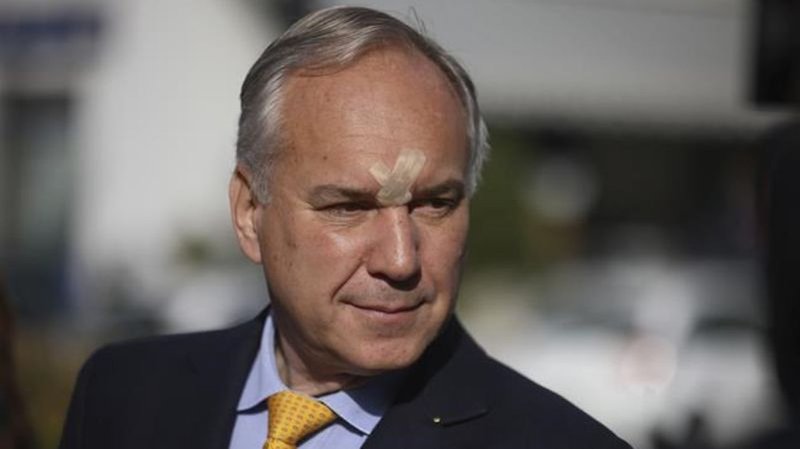
Projection: Austria’s president to win 2nd term, no runoff
VIENNA (AP) — A projection indicates that Austria’s liberal president is on course to win a second six-year term without the need for a runoff vote.
The projection for ORF public television shortly after the last polling stations closed in Sunday’s election showed President Alexander Van der Bellen winning 54.6% of the vote. It gave a margin of error of plus or minus 2.1 percentage points.
His closest rival, the far-right Freedom Party candidate Walter Rosenkranz, was expected to get just under 19% support.
The incumbent portrayed himself as the stable option in uncertain times. There were seven contenders in total, but he had the implicit or explicit backing of Austria’s mainstream parties. The Freedom Party was the only party in parliament to field a candidate against him.


